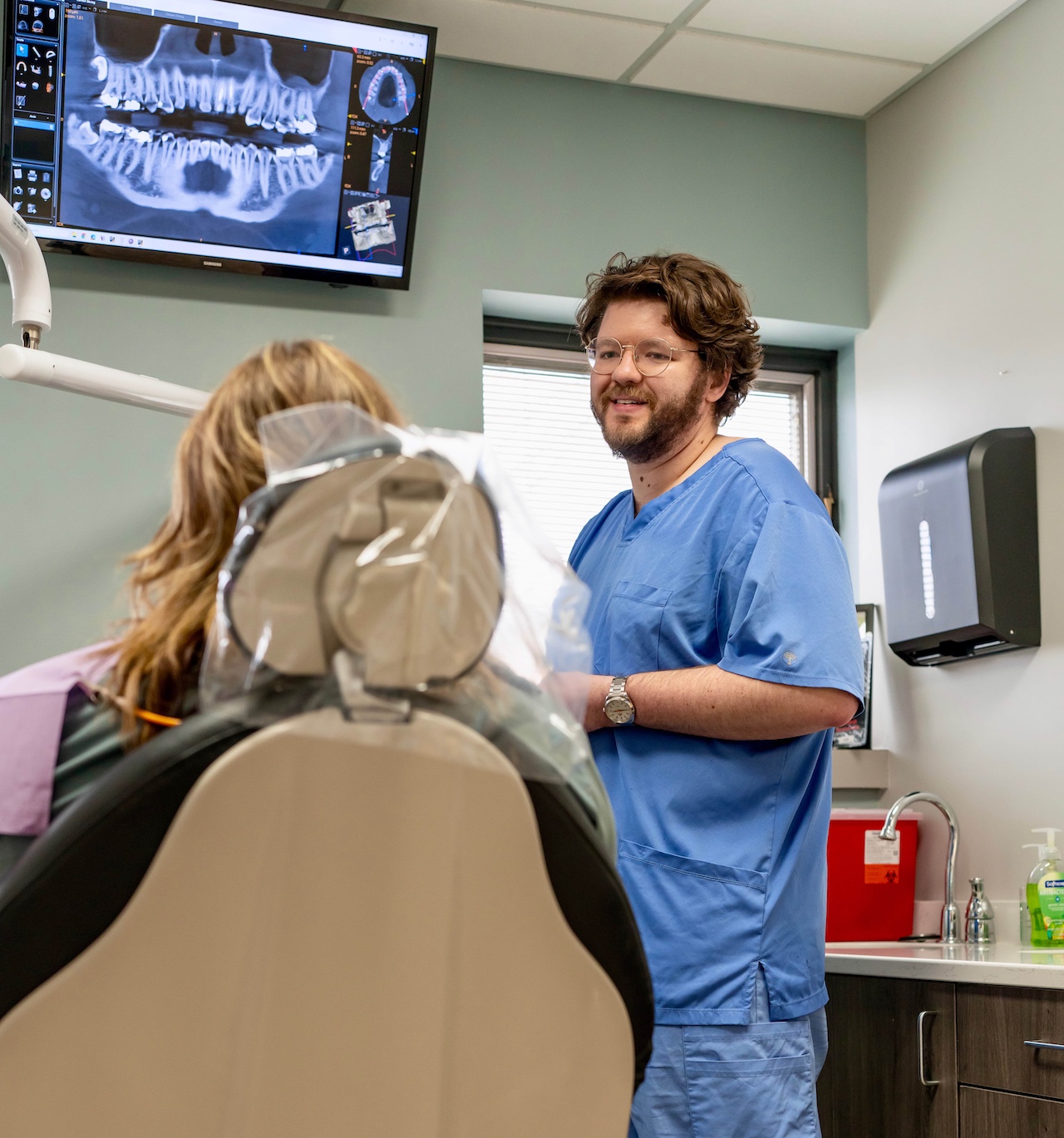Introduction: Navigating Dental Emergencies
At Emergency Dental of Salt Lake City, we understand the sudden onset of dental emergencies, which can leave patients in pain and uncertainty. Recognizing the right time to seek emergency dental care can prevent minor issues from escalating into major problems. This blog post is tailored to help you identify the signs of dental emergencies, understand the necessary steps to take when they occur, and learn how to manage your symptoms until you can visit one of our experienced Salt Lake City dentists.
Types of Dental Pain: Navigating Dental Emergencies
Toothache
A toothache is a common form of dental discomfort, ranging from mild to severe pain. Causes can vary, from cavities to gum disease. If your toothache persists beyond a couple of days, seeking a dentist’s consultation is essential. Persistent toothaches might indicate underlying issues requiring immediate attention.
Sharp Pain
Sharp, sudden pain often indicates problems like a cracked tooth or an exposed nerve. This pain can intensify with chewing or temperature changes. Immediate dental care is crucial to prevent further damage and alleviate pain.
Throbbing Pain
Throbbing pain could signal an infection or abscess. Accompanied by swelling and fever, this type of pain requires prompt treatment to prevent complications such as infection spreading. If you’re experiencing throbbing pain, it’s time to seek emergency dental care.
Gum Pain
Gum pain can result from various conditions, ranging from mild irritation to severe infections. Causes include gum disease, abscesses, and trauma. If your gum pain is accompanied by redness, swelling, or bleeding, it’s imperative to see a dentist promptly.
Signs You Need Emergency Dental Care
Severe Toothache
A severe toothache that is unresponsive to over-the-counter painkillers is a red flag. Delaying treatment can lead to severe complications, such as infections and tooth loss.
Swelling
Facial or gum swelling often indicates an infection or abscess. Prompt treatment is necessary to prevent serious health issues. Swelling accompanied by fever or breathing difficulty should be treated as a dental emergency.
Bleeding
Continuous or heavy gum bleeding warrants concern and may indicate severe conditions requiring immediate attention.
Broken or Chipped Tooth
Beyond cosmetic concerns, a broken or chipped tooth can cause severe pain and complications. Seeking dental care immediately is crucial to prevent infection and preserve the tooth.
Knocked-Out Tooth
A knocked-out tooth demands urgent attention. Quick action improves the chances of saving the tooth. Proper preservation and immediate dental care are essential in such cases.
Loose or Missing Dental Work
Loose or missing dental work, such as crowns or fillings, can lead to discomfort and further issues. Prompt attention is necessary to prevent complications and maintain oral health.
What to Do in a Dental Emergency
Call Emergency Dental of Salt Lake City
Contacting Emergency Dental of Salt Lake City is paramount in any dental emergency. We have an emergency contact number for immediate assistance. A clear explanation of symptoms helps our team provide timely advice and prepare for your visit.
Manage Pain
While awaiting dental care, managing pain is crucial. Over-the-counter pain relievers can help, and a cold compress can reduce pain and swelling.
Control Swelling
Cold compresses applied to the cheek can control swelling. Severe swelling, mainly affecting breathing, warrants immediate medical attention.
Preserve a Knocked-Out Tooth
Handle a knocked-out tooth by the crown, avoiding scrubbing or removing attached tissue fragments. Preserve it in milk or saliva and seek dental care promptly.
Avoid Certain Foods
Certain foods can exacerbate dental emergencies. Avoid hard, crunchy, or sticky foods, opting for soft foods and liquids instead.
Conclusion: Navigating Dental Emergencies
Recognizing the signs of a dental emergency and taking prompt action can prevent pain and complications. Knowing when to seek emergency dental care at Emergency Dental of Salt Lake City is crucial, whether it’s a severe toothache, swelling, or a knocked-out tooth. Call us first, follow the steps to manage pain, and preserve any knocked-out teeth.
Stay up-to-date with the latest in dental health and wellness by connecting with us on social media! Follow us on Instagram and Facebook for regular updates, tips, and insights to keep your smile bright and healthy. Join our community today and participate in our journey towards better oral health. Thank you for reading “Navigating Dental Emergencies” by Emergency Dental of Salt Lake City.
FAQs: Navigating Dental Emergencies
What qualifies as a dental emergency?
A dental emergency involves severe pain, bleeding, or mouth trauma requiring immediate attention. Examples include abscesses, knocked-out teeth, and severe toothaches.
How can I prevent dental emergencies?
Regular dental check-ups and good oral hygiene significantly reduce the risk of dental emergencies. Avoiding hard foods and wearing a mouthguard during sports can also help.
Can I go to the emergency room for a dental issue?
While emergency rooms can temporarily relieve dental pain, they are not equipped for dental procedures. Contact Emergency Dental of Salt Lake City for emergencies related to teeth and gums.
Stay informed and prepared to handle dental emergencies effectively. Don’t wait until severe pain strikes—know the signs and act promptly.

